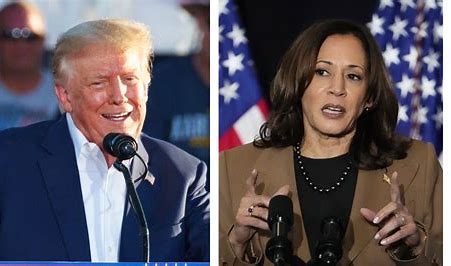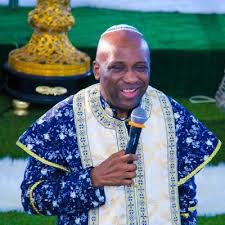Top Stories
#USDecides2024: What Trump and Harris have done so far on abortion — and what they plan to do next

It’s been clear ever since the Supreme Court overturned Roe v. Wade in June 2022 that abortion would be one of the key issues of the 2024 presidential campaign.
The GOP generally supports the court’s decision to scrap the constitutional right to abortion — a decision that dismantled nearly 50 years of nationwide legal protection for the procedure and paved the way for individual states to curtail or ban it.
Democrats, in contrast, oppose the court’s decision and have called for making Roe v. Wade “the law of the land” again — legislation that 56% of registered voters would support, according to an April Yahoo News/YouGov poll.
But where do Vice President Kamala Harris and former President Donald Trump stand?
Abortion has made headlines throughout the 2024 campaign. On April 8, Trump announced that he would leave it up to individual states to outlaw the procedure. In response, the Biden campaign accused Trump of “endorsing every single abortion ban in the states, including abortion bans with no exceptions.”
Since Harris took President Biden’s place atop the Democratic ticket, she has only increased the pressure on Trump, who has been “privately emphatic with advisers that … the abortion issue alone could kill their chances of victory in November,” according to the New York Times.
“I have talked with women around our country,” Harris said during their Sept 10 debate in Philadelphia. “This is what people wanted? Pregnant women who want to carry a pregnancy to term, suffering from a miscarriage, being denied care in an emergency room because the health care providers are afraid they might go to jail, and she’s bleeding out in a car in the parking lot — she didn’t want that. Her husband didn’t want that. A 12- or 13-year-old survivor of incest being forced to carry a pregnancy to term? They don’t want that.”
In response, Trump has tried to rebrand himself on the issue by criticizing bans in Arizona and Florida, watering down the GOP platform’s abortion language and claiming that his administration would be “great for women and their reproductive rights.”
November’s election will be the first in U.S. history to feature a former president competing against the current vice president. As a result, this year’s candidates already have extensive White House records to compare and contrast.
Here’s what Harris and Trump have done so far on abortion — and what they plan to do next.
Where they’re coming from
Where Harris is coming from: Harris has always been a far more outspoken advocate for reproductive rights than Biden, a Catholic who told supporters last year that he’s “not big on abortion.”
As attorney general of California, Harris sued an anti-abortion group that secretly recorded sting videos of abortion providers. In the U.S. Senate, she repeatedly pushed for maternal health legislation, including a 2017 bill that would have banned common state-level abortion restrictions (such as laws requiring doctors to perform specific tests before administering the procedure) as well as two bills designed to lower America’s maternal mortality rate.
“Black mothers across the country are facing a health crisis that is driven in part by implicit bias in our health care system,” Harris said in 2019, citing statistics from the Centers for Disease Control and Prevention showing that Black women are 3.3 times more likely than white women to die of pregnancy complications. “We must take action to address this issue, and we must do it with the sense of urgency it deserves.”
Then-Sen. Harris also co-sponsored bills to expand birth control access and fund care for uterine fibroids.
As a candidate for the Democratic Party’s 2020 presidential nomination, Harris went a step further than any of her rivals — Biden included — by proposing federal “pre-clearance” for new abortion laws in states with a history of restricting abortion rights.
Modeled after the Voting Rights Act and meant to “[block] discrimination before it occurs,” Harris’s plan would have forced states such as South Carolina, Iowa and Georgia to obtain permission from the Justice Department before passing new abortion laws — or else have them declared illegal and unenforceable.
Where Trump is coming from: Trump has said in the past that he favors abortion rights despite his personal discomfort with the procedure.
“I’m very pro-choice,” he said during a Meet the Press interview in October 1999. “I hate the concept of abortion. I hate it. I hate everything it stands for. I cringe when I listen to people debating the subject. But you still — I just believe in choice.”
But Trump changed his mind while considering a 2012 presidential run — and started to describe himself as “pro-life.”
“Pro-life people will find out that I will be very loyal to them, just as I am loyal to other people,” he told the New York Times. “I would be appointing judges that feel the way I feel.”
True to his word, Trump vowed during his 2016 presidential campaign to nominate Supreme Court justices who would “automatically” overturn Roe, even going so far as to release his list of potential nominees — and to say that there would have to be “some form of punishment” for female patients if the procedure was outlawed (a statement his campaign quickly walked back).
What they’ve done in office
What Harris has done as vice president: On abortion, Harris’s vice presidency can be divided into two phases: before Dobbs v. Jackson Women’s Health Organization (the 2022 Supreme Court decision that ended Roe) and after.
Before Dobbs, Harris largely focused on the broader issue of maternal health, calling attention to the fact that Black women suffer pregnancy complications at a much higher rate than white women — and are much less likely to be believed when something goes wrong.
In December 2021, she announced the first-ever White House Maternal Health Day of Action, along with “new commitments to support safe pregnancies and childbirth, and reduce complications and mortality in the year following birth.”
The following June, the Supreme Court’s conservative majority struck down Roe. In response, the Biden-Harris administration took a series of actions to expand access to abortion pills via telemedicine and at pharmacies; to defend emergency care for patients experiencing pregnancy loss and other pregnancy-related problems; to support patients’ ability to travel across state lines for abortions; and to safeguard the privacy of patients and providers.
Harris immediately became Biden’s point person on the issue. Behind the scenes, Harris “led intense efforts to marshal outside allies [while] pressing the Biden administration to do more in response,” according to CNN. In public, she traveled the country, initially holding “fact-finding” roundtables with state legislators and stakeholders — and later headlining campaign-style events to promote the administration’s response.
“We stand for the freedom of every American, including the freedom of every person everywhere to make decisions — about their own body, their own health care and their own doctor,” Harris said at a June 2023 abortion-rights rally in Washington, D.C. “So we fight for reproductive rights and legislation that restores the protections of Roe v. Wade. And here’s the thing. The majority of Americans are with us. They agree.”
In March, Harris became the first and only vice president to pay an official visit to an abortion clinic, according to the White House.
What Trump did as president: Trump nominated three Supreme Court justices during his time in the White House: Neil Gorsuch, Brett Kavanaugh and Amy Coney Barrett.
In 2017, Senate Republicans eliminated the filibuster for Supreme Court nominations, lowering the threshold for confirmation from 60 votes to a simple majority of 51 votes.
As a result, all three of Trump’s nominees were confirmed with minimal bipartisan support.
And all three voted to overturn Roe v. Wade.
“For 54 years, they were trying to get Roe v. Wade terminated, and I did it and I’m proud to have done it,” Trump boasted in January.
While in the Oval Office, Trump also backed a federal abortion ban after 20 weeks of pregnancy, saying it would “help to facilitate the culture of life to which our nation aspires,” and blocked organizations that provide abortion referrals — such as Planned Parenthood — from receiving federal family-planning money.
Trump has described himself as “the most pro-life president in American history.”
What they want to do next
What Harris wants to do next: In response to Dobbs, Biden has repeatedly emphasized the need to restore the “protections of Roe v. Wade in every state” by passing legislation in Congress.
Harris has made this promise a central part of her fledgling campaign. “When Congress passes a bill to restore reproductive freedom, as president of the United States, I will proudly sign it into law,” she said in her Democratic National Convention speech.
But doing so would require at least 60 votes in the Senate — unless Harris is willing to lift the filibuster for abortion legislation. While centrist Democrats blocked Biden’s brief push for a filibuster carve-out in 2022, it’s possible that the idea could make a comeback if Harris wins in November.
“Our president, Joe Biden, he’s been clear,” Harris told a meeting of the Democratic National Committee in September 2022. “He’s kinda done with those archaic Senate rules that are standing in the way. And, you know, for me, as vice president, I’m also president of the Senate. … I cannot wait to cast the deciding vote to break the filibuster.
“With just two more seats in the Senate,” Harris continued, “we can codify Roe v. Wade, we can put the protections of Roe in law.”
Short of that, Harris would likely continue the federal protections put in place during Biden’s presidency — which another president could easily overturn.
What Trump wants to do next: Nodding to a series of recent post-Roe election losses for Republicans in places where further abortion restrictions have been on the ballot, Trump has cautioned his party against going too far on the issue, criticizing some of the more restrictive state laws as a “terrible mistake” and blaming “the ‘abortion issue,’ poorly handled by many Republicans,” for GOP underperformance in the 2022 midterms.
So after considering a 15-week national abortion ban of his own, Trump announced in April that he would leave it up to individual states to make their own rules.
“Whatever they decide must be the law of the land,” he said in a video.
Trump later said that he would not sign a federal abortion ban as president. But when pressed during the Sept. 10 debate with Harris, he seemed to suggest that the reason he wouldn’t sign a ban is because Congress would never pass one — while repeatedly refusing to say whether he would actually veto such legislation, should it ever emerge from Capitol Hill.
“I’m not in favor of [an] abortion ban, but it doesn’t matter because this issue has now been taken over by the states,” Trump said. “I won’t have to.”
“But if I could just get a yes or no,” one of the moderators interjected. “Because your running mate JD Vance has said that you would veto if it did come to your desk.”
“Well, I didn’t discuss it with JD, in all fairness,” Trump replied. “I don’t mind if he has a certain view… but I really didn’t.”
Since Roe v. Wade was overturned, 14 states have effectively eliminated abortion; an additional seven have banned it at an earlier stage than the half-century status quo under Roe, which protected abortion rights until 22 or 23 weeks of pregnancy — the point of “viability” at which a fetus can survive outside the womb. Several other states are trying to further ban the procedure.
That means only about half the states would continue the protections of Roe v. Wade under a second Trump term.
In addition, Trump allies and former Trump officials have been developing plans for executive actions — including criminalizing the shipment of abortion pills — that would allow him to outlaw abortion without passing any new legislation, according to the New York Times.
“We don’t need a federal ban [because] there’s a smorgasbord of options,” said Jonathan Mitchell, the legal force behind a 2021 Texas law that found a way to effectively ban abortion in the state before Roe v. Wade was overturned. But “I think the pro-life groups should keep their mouths shut as much as possible until the election.”


 Top Stories12 hours ago
Top Stories12 hours agoTinubu’s Aide Condemns Plan To Reinstall ‘Jesus Is Not God’ Banner In Lekki Mosque

 Top Stories7 hours ago
Top Stories7 hours agoBreaking: FIRS Announces Fresh Recruitment, See Eligibility Criteria, Application Deadline

 News13 hours ago
News13 hours agoPetrol To Sell ₦935/Litre From Today – IPMAN

 Top Stories13 hours ago
Top Stories13 hours ago2025 Budget Cannot Address Nigeria’s Economic Challenges – Atiku

 Top Stories10 hours ago
Top Stories10 hours agoPrimate Ayodele’s Prophecies For 2025

 Entertainment13 hours ago
Entertainment13 hours agoI will be more influential in Nigeria than UK – Tobi Adegboyega

 News13 hours ago
News13 hours agoPresident Tinubu’s reforms not responsible for food stampedes – FG








